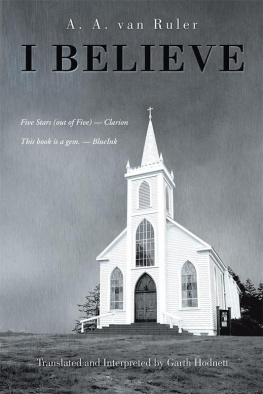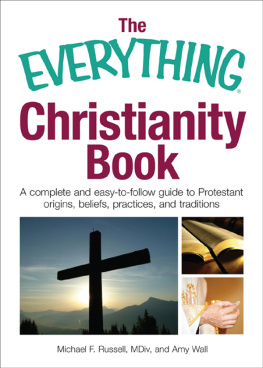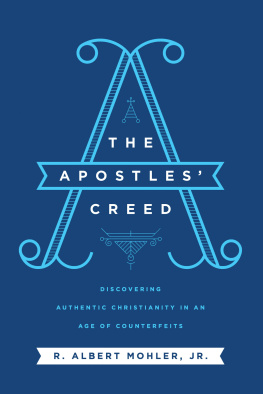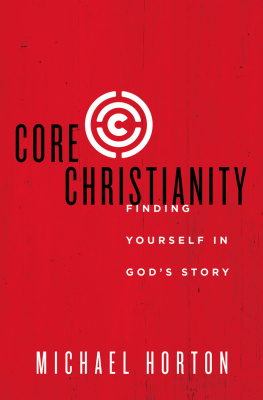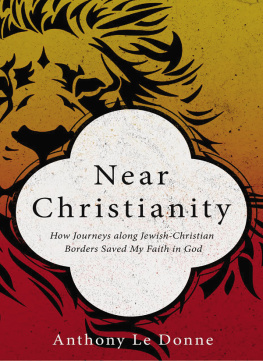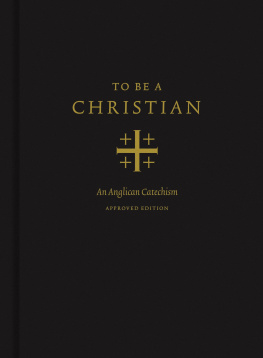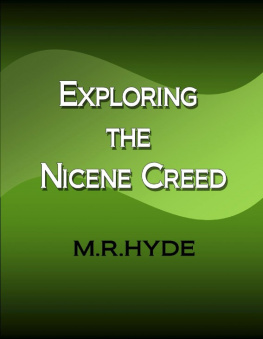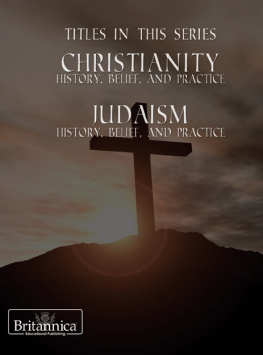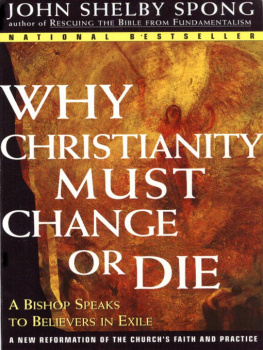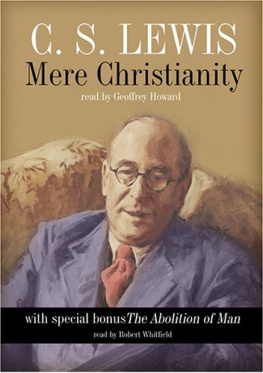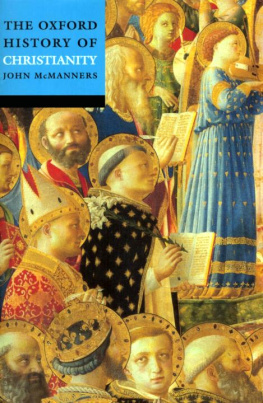I Believe
The Twelve Articles of Faith in Morning Devotions
A. A. VAN RULER
Translated and Interpreted by Garth Hodnett
Copyright 2015 by Garth Hodnett.
ISBN: | Softcover | 978-1-4990-9605-7 |
eBook | 978-1-4990-9604-0 |
All rights reserved. No part of this book may be reproduced or transmitted in any form or by any means, electronic or mechanical, including photocopying, recording, or by any information storage and retrieval system, without permission in writing from the copyright owner.
Any people depicted in stock imagery provided by Thinkstock are models, and such images are being used for illustrative purposes only.
Certain stock imagery Thinkstock.
Rev. date: 05/19/2015
Xlibris
800-056-3182
www.Xlibrispublishing.co.uk
521494
Contents
1-9
10-15
16-19
20-25
26-29
30-32
34-37
The work of Arnold Van Ruler is not nearly as well known in the English speaking world as it deserves to be. Unfortunately most of his work remains untranslated. I was introduced to the work of A.A. van Ruler by my mentor and friend, the late Professor Ben Engelbrecht, at the University of the Witwatersrand, while studying for my tertiary degrees. It was: The Christian Church and the Old Testament (Eerdmans, 1971), one of the few works that have been translated. I was so captured with the clarity and thoroughness of this work that I could not help but go on to do my Masters and Th.D. on the theology of Van Ruler.
I translated this work in an attempt to learn Dutch, as well as to become more familiar with his ideas. At the time, Prof. Engelbrecht said I should get it published, but unfortunately other things kept me occupied. After attending his funeral, I returned to my translation, with new resolve to get it published. I have mostly ironed out the more clumsy parts of my translation, while staying as close to the original as possible. Suggestions for the improvement of the translation would be very much appreciated and taken into account if a second edition is printed.
I dedicate this book to the memory of the late Professor Benjamin Engelbrecht
I would like to thank all those who helped me with the book, especially Sylvia Hodnett, who helped me with error checking and typing. To Prof. Engelbrechts family for providing me with a picture of their father. And a special thanks to Kees van Ruler (Arnold van Rulers eldest son), and the Van Ruler Foundation, that have kindly allowed me to publish this translation with just the proviso of the addition: Translated and Interpreted by Garth Hodnett on the Cover and on the Title Page.
For those who dont know the Apostles Creed, I have added a copy of the version that Van Ruler uses (there are different versions, but they have only minor differences).
Garth Hodnett
I believe in God the Father Almighty, Creator of heaven and earth.
And in Jesus Christ, his only-begotten Son Our Lord,
Who was conceived by the Holy Spirit, born of the Virgin Mary.
Who suffered under Pontius Pilate, crucified, died, and buried: He descended into hell;
The third day He rose again from the dead; He ascended into heaven, and sitteth at the right hand of God the Father Almighty;
From thence he shall come to judge the living and the dead.
I believe in the Holy Spirit,
The holy Christian Catholic church;
The communion of saints;
The forgiveness of sins;
The resurrection of the flesh,
And the life everlasting.
Amen.
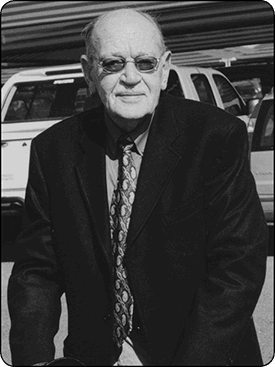
Dedicated to the memory of Prof. Benjamin Engelbrecht
From June 1966 to March 1968, during my twice weekly morning teaching from behind the microphone at the AVRO radio station, I was dealing with the so-called Twelve Articles of the faith also called the Apostolic Confession, or simply the Apolisticum
The listeners were surprisingly interested in this at first sight pure theological teaching. This interest was even more surprising, as I did not make the slightest attempt to come to terms with modern expressions. I concentrated completely on the apostolic gospel in all its uniqueness (foolishness in the words of Paul), as it is summarised in the Apolisticum. Whoever thinks about these things clearly and properly, will either agree with the apostolic gospel, or must stop calling themselves Christians.
From the many reactions of the listeners, it has become very clear to me that this sort of explanation of Christian belief, including its intellectual content, is necessary. Therefore I am thankful that the Uitgeverig Callenbabach Nijkerk is prepared to print this book, just as I am grateful to AVRO that they gave me the opportunity to give this talk on the radio.
A.A. van Ruler
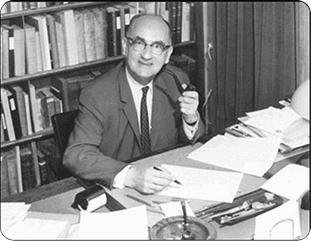
Arnold Van Ruler in his study
The Twelve Articles of faith, also called the Apostles Creed or Apostolicum, is one of the oldest documents of the Western church. This creed had already begun to take form, in its main points, in the Christian community in Rome as early as about 150 AD. It is a summary - in a few ancient formulas - of the original apostolic gospel. The apostles brought the gospel of Jesus as the Christ to the world and those who believed, reflected on their faith and asked themselves: what exactly have we been told? Thus a formulated confession of faith came into being.
We will begin by limiting ourselves to the very first word of the Apostolicum - the word I. The first line reads: I believe in God the Father. Obviously, the word we could just as well have been used. This is the case in the other confessions of faith, for instance in the Nicene Creed. In the Christian faith there is always the greater whole of the church. The church is the body of Christ, the nation of God, the temple of the Holy Spirit. In this sense, it is the church that believes - I believe together with it. I am never alone in my belief. I also do not sing alone. There is an enormous choir in the world that sings the praises of God. That is the church. I stand in that choir and I sing together with it. This is the best way to sing, as it helps keep me in tune. The church helps to keep the individual member in line.
I certainly do not want to deny all this, I would even go a step further. The church is not only important in matters of faith because as a body of believers it keeps the individual in line, but also because there are the offices, which are the continuation of the apostolic office. From the beginning the church has stood at the source of the gospel about Jesus as the Christ. The individual believer has not pulled this gospel out of thin air. The apostles also did not simply imagine this good news. It is wholly and completely an act of God in history. He sent his Son to die on the cross for us. The church stands on the sure foundation of this confession of Jesus as the messiah. The believers stand together with the church on that foundation.
Yet the faithful do not only say we. They can also say I. The individual is not dissolved in the greater whole of the church. Individuality is valued, and retained in all its fullness. The individual goes and stands together with that choir of the church and he plays his individual part. Just as he is supported by the choir, so he also supports the choir. Finally, we are not only dependent on the other believers, on the office bearers, on the apostles, on Gods acts in history. We also have a mind and a heart. We can distinguish between truth and falsity. We can also articulate this distinction by expressing the truth. Then we say: I believe in God the Father. We affirm this from our innermost being. Then we are mature children - of God, and we express our individuality. No longer do we ignore the important things in life, rather, we think and act as individuals, consciously and with purpose.
Next page
